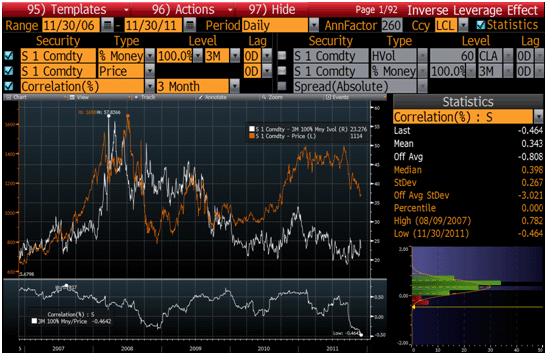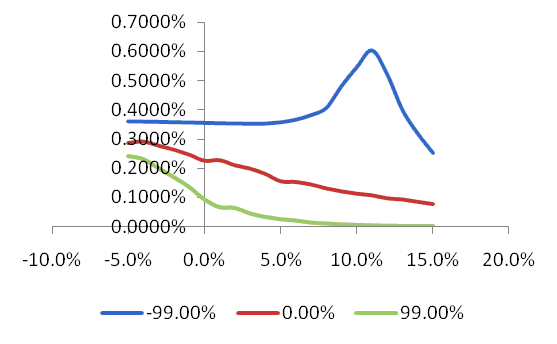Risk Latte As Stocks fall why do volatilities increase
Post on: 25 Июнь, 2015 No Comment

As Stocks fall, why do volatilities increase?
Rahul Bhattacharya
September 7, 2007
In any training programme, this is one of the most common questions asked by any group of graduate trainees joining a bank’s derivatives sales, trading or structuring team. Why does the (implied) volatility of a stock rise when the stock price starts to fall?
There are two different explanations — or rather point of view — for this phenomenon. The first one deals with implied volatility and the second one with the return volatility. Though strictly speaking both the volatility concepts are quite different, we can in general talk about volatility versus a falling stock price.
The first point of view deals explicitly with the options market and the psychology of the option sellers (primarily the traders in the banks who make the market for options). As a stock price starts to decline the put options in the market start to come in the money. In other words, the puts become more expensive. Moreover, investors start to buy more put options to protect their long positions (either speculative or investment) in the underlying stock. This in turn causes the put prices to rise. The price of any option — put option — is a function of the implied volatility; everything else remaining unchanged, an increase in the price of the option will linearly increase the value of implied volatility of an option (for barrier options the increase is non-linear). In fact, implied volatility is itself a proxy for option price. Therefore, falling stock price causes the put options on the stock to go up in value which in turn causes the implied volatility of the stock to increase.
Most traders who sell options are wary of a stock market crash or a severely falling market. In anticipation of that they always quote a high value for the implied volatility.
The second point of view is that when a stock price declines its return volatility increases due to the leverage effect. This is the well known leverage effect in Black’s model. Falling stock price will increase the leverage (debt to equity ratio in terms of market value) of the company; and hence the default risk of the company will increase. This will cause more and more investors to sell the stock further thereby exacerbating the return volatility. In fact, there is a negative correlation between the diffusion shocks in return of a stock (refer: stochastic differential equation of a stock) and the return variance (square of the volatility)*.
In fact, the second explanation clearly establishes a relationship between the stock return volatility and the probability of default of the company. The relationship is borne out empirically and can be modeled mathematically by incorporating the default intensity in the drift term of the stochastic differential equation for a stock price.

Given the turmoil in the credit and the equity markets recently a lot of traders have drawn conclusion that there is a very strong linkage between the implied volatility (or the return volatility) of a stock and the credit default spreads on the underlying name. Quite a few traders have also started to incorporate default probabilities in computing implied volatility of the stock.
*Reference: See Carr and Wu’s paper on Stock Options and Credit Default Swaps: Joint Framework for valuation.
Any comments and queries can be sent through our web-based form .
More on Quantitative Finance >>
back to top














